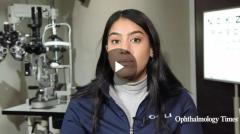
Cyclosporine Formulation Challenges
Episodes in this series

Dr Donnenfeld reviews the challenges of formulating topical cyclosporine.
[Transcript]
Marguerite McDonald, MD, FACS: Let’s talk about the challenges of formulating generic cyclosporine. What comes to mind when you hear about all the new ones coming down the pike?
Eric Donnenfeld, MD, FACS: Cyclosporine is arguably one of the most difficult medications we’ve ever tried to formulate. Allergan did this about 15 years ago, and it was difficult because cyclosporine is very lipophilic. The tear film is obviously aqueous. To provide a medication that’s going to penetrate into the eye, you have to have it be biphasic. It has to be both lipophilic and hydrophilic. They [Allergan] created an emulsion that brings the best of both together. Usually a lipid and an aqueous component don’t work together, but due to proprietary technology, they’ve been able to do this.
Cyclosporine has been around for a long time. We’ve tried various different ways of getting it into the eye. Here’s a case where the vehicle is extraordinarily important, maybe even as important as the molecule itself. What was done with cyclosporine really made an enormous difference in efficacy. If you don’t have the right formulation, it’s not going to be bioavailable. It’s going to be uncomfortable, and it won’t be therapeutic.
Marguerite McDonald, MD, FACS: Some companies have tried to compensate by going extremely high in concentration, which is ineffective, actually, or far less effective.
Eric Donnenfeld, MD, FACS: Exactly, and it hurts.
Marguerite McDonald, MD, FACS: And it hurts.
Newsletter
Don’t miss out—get Ophthalmology Times updates on the latest clinical advancements and expert interviews, straight to your inbox.








































